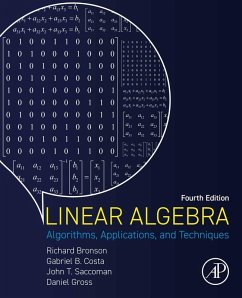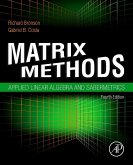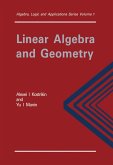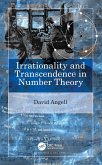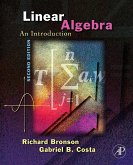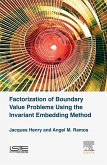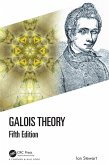Linear Algebra: Algorithms, Applications, and Techniques, Fourth Edition offers a modern and algorithmic approach to computation while providing clear and straightforward theoretical background information. The book guides readers through the major applications, with chapters on properties of real numbers, proof techniques, matrices, vector spaces, linear transformations, eigen values, and Euclidean inner products. Appendices on Jordan canonical forms and Markov chains are included for further study. This useful textbook presents broad and balanced views of theory, with key material highlighted and summarized in each chapter. To further support student practice, the book also includes ample exercises with answers and hints.
- Introduces deductive reasoning and helps the reader develop a facility with mathematical proofs
- Provides a balanced approach to computation and theory by offering computational algorithms for finding eigenvalues and eigenvectors
- Offers excellent exercise sets, ranging from drill to theoretical/challenging, along with useful and interesting applications not found in other introductory linear algebra texts
Dieser Download kann aus rechtlichen Gründen nur mit Rechnungsadresse in A, B, BG, CY, CZ, D, DK, EW, E, FIN, F, GR, HR, H, IRL, I, LT, L, LR, M, NL, PL, P, R, S, SLO, SK ausgeliefert werden.

